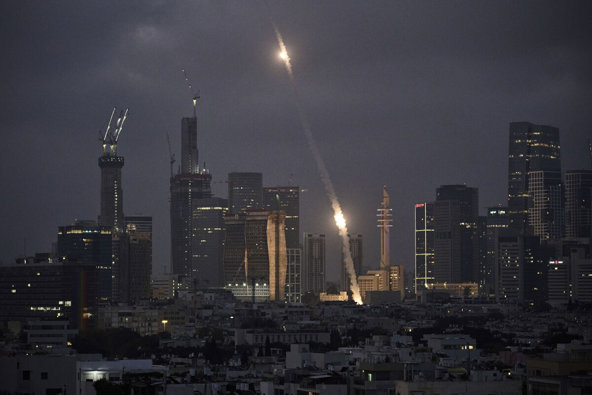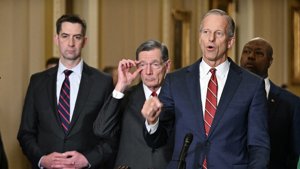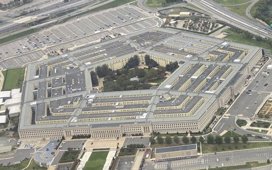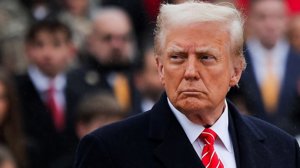
Lawmakers Split Over Israel-Iran Conflict
U.S. lawmakers clash over Israel’s Iran airstrikes, with Democrats warning of escalation and Republicans backing Trump’s diplomacy.
Democratic Lawmakers Denounce Netanyahu’s Strike
Democratic leaders sharply criticized Israel’s decision to launch preemptive airstrikes on Iran’s nuclear and missile infrastructure under “Operation Rising Lion,” calling the move reckless and destabilizing. The attack was followed by Iranian missile strikes on Tel Aviv, injuring at least five people.
Senator Bernie Sanders condemned Israeli Prime Minister Benjamin Netanyahu as an “extremist,” accusing him of defying international law and undermining U.S. diplomatic efforts. “Netanyahu’s illegal unilateral attack on Iran risks a full-blown regional war,” Sanders said, adding that the strike disrupted nuclear talks scheduled for Sunday. “The U.S. must make clear we will not be dragged into another Netanyahu war.”
Senator Chris Murphy echoed the sentiment, claiming Israel intended to sabotage diplomacy. He referenced reports that one of the Israeli targets was Iran’s lead negotiator with the U.S. Senator Tim Kaine questioned the timing, asking why Israel would launch an attack when talks were imminent. Senator Jack Reed called the strike “a reckless escalation” and emphasized diplomacy over military action.
However, some Democrats shifted tone following Iran’s counterattack. Representative Brad Sherman labeled Tehran’s missile strike “cowardice,” accusing the regime of targeting civilians in Tel Aviv rather than military assets. Others, like Senator Mark Warner, struck a cautious balance, affirming Israel’s right to self-defense while urging de-escalation to prevent broader conflict.
Republicans Back Trump’s Diplomatic Push, Warn of Risks
Republican lawmakers expressed strong support for Israel but diverged over the extent of U.S. involvement. President Donald Trump urged Iran to return to nuclear negotiations, warning that failure could result in “even more brutal” consequences. “Iran cannot have a nuclear bomb,” Trump said, noting that Israel’s action followed a 60-day window given to Tehran to reach a deal.
Senator Lindsey Graham praised Trump’s diplomatic offer but pushed for a robust response if Iran rejects it. “If diplomacy fails, America must go all-in to help Israel finish the job,” Graham said, citing national security and global credibility. Others, like Senator Josh Hawley, opposed military involvement, saying Trump would keep American troops out of harm’s way.
Senator Jim Risch emphasized Trump’s record of avoiding war. “No one hates to see U.S. troops put at risk more than our president,” he said. Senator Tim Sheehy supported Israel’s right to act, calling the strike “warranted” due to Iran’s long-standing threats. However, Senator Mark Kelly, a Democrat, blamed the collapse of the 2015 nuclear deal for Iran’s escalation and called for renewed talks to avoid further danger to U.S. personnel and interests.
Calls for Regime Change and Future Uncertainty
Representative Michael McCaul, who recently visited Israel with a congressional delegation, saw the strikes as a potential turning point. “Now that their top leadership has been taken out, if there’s ever a time for the people to rise up against this theocracy, it is now,” McCaul said, suggesting that Iran’s internal unrest may intensify.
McCaul noted that Israeli officials, including Netanyahu, had long signaled a willingness to strike Iran alone. “He said, ‘If you don’t fight, you die,’” McCaul recalled, urging the need for coordination with U.S. and regional allies.
Iran’s leadership has vowed a “legitimate and powerful response,” with President Masoud Pezeshkian warning of further retaliation. While Trump expressed hope that Iran might re-enter negotiations, skepticism remains. “I have little faith in the negotiations, to be honest,” McCaul admitted.
As U.S. bases across the region remain on high alert, lawmakers on both sides of the aisle are grappling with how to navigate a volatile crisis that threatens to spiral into a larger regional conflict. The coming days may determine whether diplomacy can hold, or if the situation will draw the United States deeper into confrontation.






